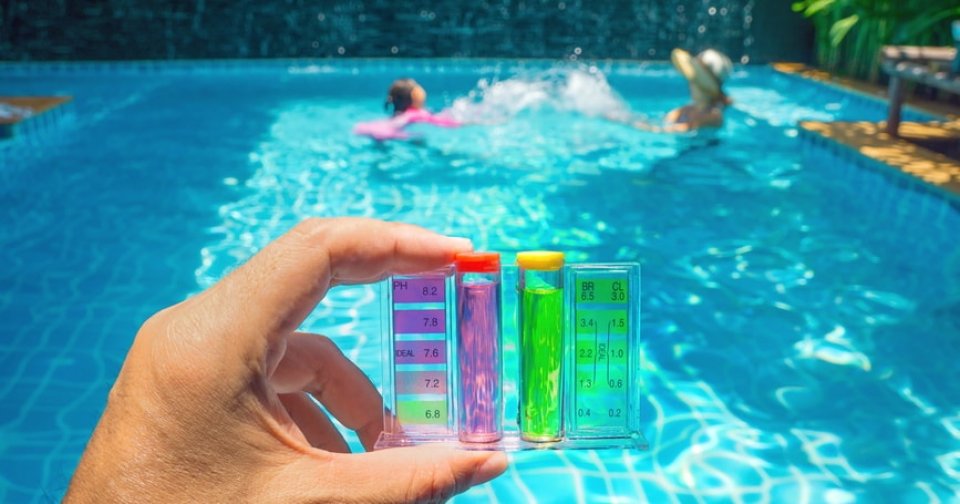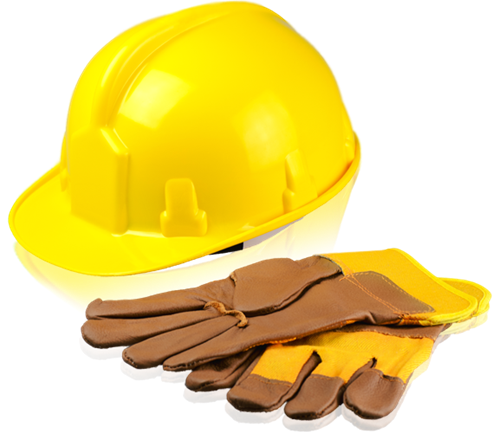POOL MAINTENANCE
Pool Maintenance Nashville – Taking care of your pool ensures that your family keeps enjoying the experience that it offers. And because having one is truly a valuable investment, keeping it in good condition is as good as protecting the asset itself. But what can be a more important reason than giving your family a haven for enjoyment and relaxation for many years to come? You built your inground pool to indulge in the luxury that you deserve. But to enjoy one, maintaining water quality is always a paramount concern.
Keeping the water clean with suitable pH and chlorine levels ensures that you keep your family away from water-borne intestinal and skin diseases. Maintaining between 1-3 ppm (parts per million) of chlorine level kills bacteria that can otherwise infect the gut or the skin. This ideal level should be observed to avoid bacterial proliferation and skin or eye irritation at excessive levels. Of course, you want the water to be clean, but you don’t want to be itching after a dip.
The pH level tells you whether your pool is on the acidic or alkaline side. Generally, water has a pH of 7, and your pool shouldn’t be far away, between pH 7.2 to 8. Aside from pool chemicals, water acidity or alkalinity is influenced by other particulate substances, including dirt or algae proliferation. Keeping surfaces clean and ensuring that your filtration system functions flawlessly gives you fewer worries and more time to enjoy on the water.
It’s not that easy to maintain a pool, but it doesn’t mean that it can’t be done in a DIY fashion. Cleaning is ideally done at least once a week, making sure that dirt and other debris that might have fallen to it are removed by using a net, and when needed, a vacuum cleaner intended for swimming pools.
Every inch of the walls and bottom should be cleared of dirt or stains that might have adhered to the surface finish, especially on the grout, as the spaces between tiles can provide a suitable environment for algae to grow. Running your filters as often as possible is great for maintaining a clean swimming pool. During the season, your schedule might have to be more frequent than usual. If you think that keeping your pool clean takes a toll on your budget, you’re right, but poor maintenance will cost you even bigger.
Whether you consider cleaning your pool as a simple feat or a back-breaking task to handle is up to you. But apart from the time that you would have to devote, keep in mind that any mistakes could lead to your pool causing more problems instead of fun. When maintaining a supply of pool chemicals, testing strips, and cleaning implements is not a hobby that you would enjoy, we’ve got you covered. Call us and let the best pool company in Nashville clean them for you!
Chlorine: Understanding The Benefits and Risks

Chlorine remains to be the most widely used pool chemical. However, when it comes in contact with a microorganism, it promotes damage to the bacterial cell membrane, causing a cascade of events that eventually lead to bacterial death.
Thus, it keeps the water clean and clear by preventing bacterial growth. In suitable amounts, chlorine is even used to purify drinking water. However, while this same chemical devoids your pool of harmful microorganisms, excessive levels can prove dangerous. So, more than itching and irritation, there’s more to using chlorine that every pool owner should know.
Kids and adults unavoidably swallow a tiny amount of water from the pool, sometimes. However, when chlorine is present in excessive amounts, the chances of skin reaction and poisoning pose a significant danger that demands the utmost attention.
When swallowed, the chemical triggers a reaction from the mucosal lining of the digestive and respiratory tract, causing nausea and vomiting, burning sensation on the throat, as well as difficulty breathing. Depending on the amount ingested, blood in the stools can even manifest. Prolonged exposure to excessive chlorine levels also causes an alteration in blood pH, low blood pressure, as well as blurred vision.
Chlorine poisoning can either be mild or severe. Using chlorine in proper amounts ensures that you protect your family by keeping the pool safe, as much as you’re keeping it beautiful. As the owner, it is your inherent responsibility to make sure that it is both. Your swimming pool is there for you to enjoy, and Pool Builders Nashville will make sure that you do. Let our experts take care of the task, so you can focus on taking care of your family.
The Pool Maintenance Log Sheet
Keeping track of maintenance schedules and remembering precisely what’s been done may not come easy for a busy individual. However, with every round possibly different from the last, missing out on what’s needed and what’s not can mean overdoing it and going for unnecessary expenses.
Either you have it DIY, or you subscribe to professional pool services. Keeping a log of everything saves you from troubles and prevents unnecessary inconveniences. In addition, the log sheet guides you with the steps to do weekly and those that need to be done on a monthly scale.
Weekly Pool Maintenance
- Removal of debris, fallen leaves, and other visible matter (frequently as needed).
- Check chlorine levels and make necessary adjustments.
- Check water level or auto-fill systems.
- Inspect water clarity and odor.
- Test the pH. Add pH increaser or pH decreaser as needed.
- Check filter pressure.
- Use algaecide whenever necessary.
- Check waterline.
- Clean surface deck (frequently as necessary).
Monthly Pool Maintenance
- Check all safety equipment.
- Check piping systems, pumps, and valves.
- Check the physical appearance of tiles, grout, or other surface finish.
- Check for total alkalinity.
- Check for total dissolved solids.
- Check salt levels (for saltwater pools).
- Check for calcium hardness, observe any reaction on the surface finish.
- Clean the filter with a chemical solution.
- Check for cracks and sharp edges.
- Check integrity of electrical connections.
While keeping a routine in pool maintenance simplifies the otherwise tedious task, nothing stands better than the watchful eye of one who frequently uses it – you. A schedule saves you from confusion, but it doesn’t offer the discerning observation that only you can have. Similar to keeping up with a car’s periodic maintenance, keeping your pool in good condition not only allows you to preserve its beauty but enables you to preserve its value. More than the physical structure, it’s where you build lasting memories.
Indicators of A Balanced Water Chemistry
PH Level
PH is the index of acidity or alkalinity. A pH level below 7 (acidic) may cause a sting or a mild burning sensation. Low pH levels can cause metal corrosion, especially on heat exchange coils that are made of copper. A swimming pool will generally increase in pH over time. Muriatic acid is added to lower the pH and soda ash to expand it to make the necessary adjustment.
Total Alkalinity (TA)
Total Alkalinity indicates your water’s ability to buffer any changes in pH level. The TA is raised by adding a large amount of baking soda, preferably in titrated amounts, as necessary. To counteract excessively high TA and prevent calcium scaling, adding muriatic acid or dry acid reverses the condition.
Free Chlorine (FC)
FC is the most important index of water balance. A low FC renders the water suitable for algae to grow, making it unsafe for swimming. FC is consumed when it breaks down organic material present in the water. Exposure to sunlight also degrades available FC. Thus, frequent monitoring ensures the availability of chlorine to sanitize the water and to keep it safe.
Combined Chlorine (CC)
CC is produced as a breakdown product during pool sanitation. It causes a noticeable chlorine odor in swimming pools. A CC above 0.5 parts per million indicates that something in the water is being broken down by Free Chlorine (FC).
Cyanuric Acid (CYA)
CYA protects FC from degradation by sunlight. It also stabilizes available FC by keeping some FC from being readily available for reacting with organic matter. CYA level is proportional to the amount of FC needed to exert the desired result by overcoming its modulating effects. The higher the CYA, the more FC is required.
CYA is added by placing the granular compound in a sock which is then placed inside the skimmer, or by suspending the path of a pool return. Pumps should be running for 24 hours, with the contents of the sock to be fully dissolved. CYA levels are measured one day after they’re fully dissolved in water. Afterwhich, you can make adjustments by adding water or subjecting to reverse osmosis.

Pool Builders of Nashville
Save yourself the hassle of maintaining and cleaning your inground pool. At Pool Builders of Nashville, we go the extra mile to provide high-quality services at reasonable rates. You can count on us for experienced professionals and premium cleansing agents. Reach out to our team today to learn more about our pool maintenance and cleaning solutions. We look forward to working with you!

